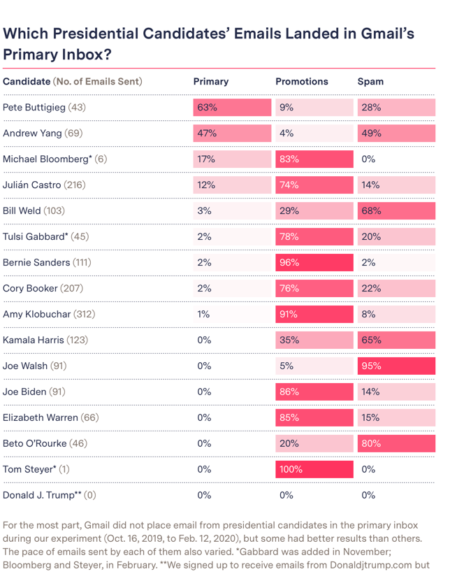Back at it
Back at the office after traveling to visit a bunch of our US friends recently. A lot of news, both in and out of the email space, happened while we were gone. The biggest stories are outside the email space and I will admit to following the coronavirus news probably closer than I should. (My graduate work was done across the hall from one of the major avian epidemic monitoring labs. This is the kind of thing we discussed at lunch and over beers.)
The next few paragraphs are general musings about the state of the world. Scroll down to “IN EMAIL NEWS” if you just care about that.
As a consequence of the spread of COVID-19, many conferences and company gatherings are being cancelled. I know it’s frustrating to not get to go to a conference you’ve been looking forward to, but minimising contact really is the best way to slow the spread of the infection. There’s also the developing financial crisis and oil wars. Fun times.
A number of conferences are being cancelled and postponed. Many folks in the industry are on orders to work from home. The good news is that the data from Hong Kong shows that social distancing works to curb the spread of disease (and even worked to lower seasonal flu there this year). If your conference isn’t cancelled, don’t shake hands, wash your hands and don’t touch your face.
IN EMAIL NEWS
While we were gone the judge dismissed Tulsi Gabbard’s case against Google. The whole ruling is short and worth a read. But the crux is here:
Plaintiff’s essential allegation is that Google violated Plaintiff’s First Amendment rights by temporarily suspending its verified political advertising account for several hours shortly after a Democratic primary debate. Plaintiff’s claim, however, “runs headfirst into two insurmountable barriers—the First Amendment and Supreme Court precedent.” Prager Univ. v. Google LLC, No. 18- 15712, 2020 WL 913661, at *1 (9th Cir. Feb. 26, 2020).
I know there were some folks in the email space who were hoping her claims for biased email filtering would get adjudicated, but it wasn’t going to happen. Not only is there extensive case law reinforcing that ISPs can filter any mail they want, but some data shows that Google isn’t biased against her email.
The Markup have been working on a story related to filtering political email where they created a mailbox and signed it up for mail from lots of candidates and then looked at where the mail went. Much of the mail from all candidates is going to promotions. Tulsi’s mail is certainly not being treated any harsher than other candidates in this test.
As I’ve talked about, there are a lot of things that go into delivery at Gmail and I spent quite a bit of time talking with the folks researching this article about 6 months ago. The concern is that ISPs are influencing elections by how they filter. I don’t think this is true for a number of reasons.
While free consumer email addresses are ad supported, there’s not the same expectation that email is a cash cow. One reason is simply email predates the ad supported internet. And aggressively inserting ads into email accounts has not been well accepted by the users. Another reason is that economically, it is cheaper to keep a existing email user happy and on the platform than it is to acquire a new one. Social media doesn’t care about keeping users happy, in fact, they make money from outrage.
Email filtering culture is another thing that keeps me from thinking there are rogue operators blocking emails for candidates they don’t like. The culture started back in the late 90s with individuals working out ways to keep spam out of their inboxes and sysadmins trying to keep spam off their USENET spools. During that time, there was a significant amount of energy and thought directed to the idea that the Internet was a meritocracy and that they weren’t shutting down ideas, rather they were shutting down behavior. Some of the common phrases used by folks handling these early filters were “consent not content” – ie, if you wanted that message, no one was going to block it. Another was “abuse of the net, not on the net” a little more problematic, but again, it was about causing harm to the underlying infrastructure rather than hurting individual people. Many of the individuals around during this time went on to found filtering companies, work for major ISPs in their filtering creation departments and become thought leaders in the space. This underlying culture is still a part of the filtering in email.
Email was built into the fabric of the internet. Folks have been wrestling with the question of how to stop spam and “unwanted” mail for almost a quarter century now. Email filters, at the consumer ISPs in particular but also at the various business appliances, are monsters of machine learning. It’s nearly impossible to “whitelist” any particular sender and exempt them from the filters acting on their mail. The flip side is also true, it’s difficult to secretly blacklist a group of senders based on their political leanings. The underlying machine learning engines just doesn’t have those kinds of switches built into them.
In any case, the data from The Markup’s article was going to demonstrate that Tulsi is not being treated unfairly by Gmail’s filters.
